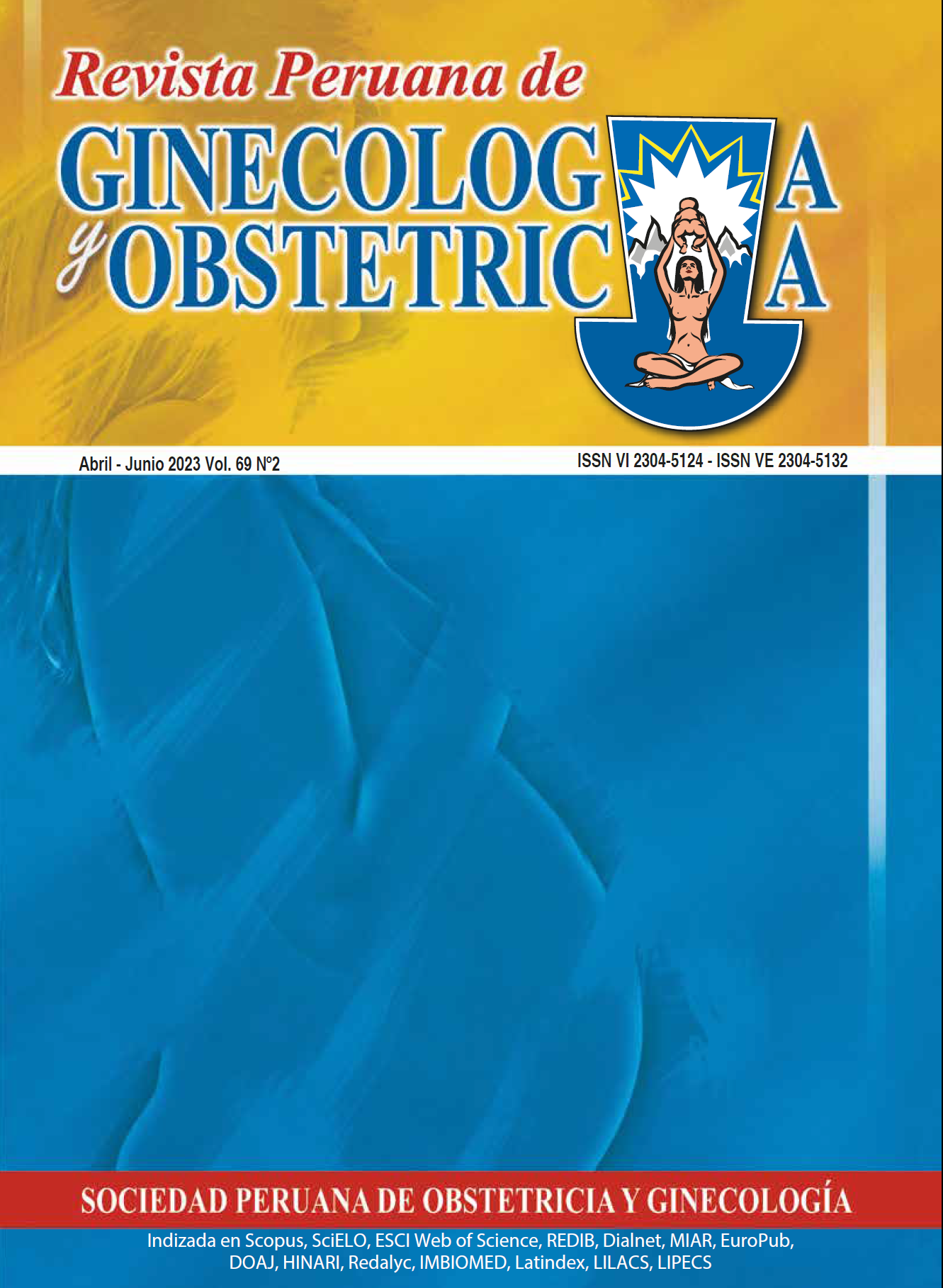Sexual and reproductive health needs of Venezuelan women migrants
DOI:
https://doi.org/10.31403/rpgo.v69i2529Keywords:
Venezuelan migrant population, Sexual and reproductive health profile, Need for careAbstract
Objective: To determine the sexual and reproductive health needs of the Venezuelan
migrant population residing in Lima and Trujillo. Methods: The sample consisted
of 1,616 women, including 1,114 women from the southern cone of Lima and 502
women from the province of Trujillo. A survey was applied to evaluate the following
dimensions: population characteristics, health service requirements, maternal health,
family planning, cervical and breast cancer prevention, and sexually transmitted
infections. Results: Most of the Venezuelan women were between 20-34 years
old. They had an identity card in 66.8%; however, 60% of them did not have a valid
document and more than 80% did not have their migratory status regularized. 46%
were cohabiters and 40.8% were single. 56.7% reported having secondary education.
82.2% had a monthly family income of less than 900 soles; 75.1% in Lima and 94% in
Trujillo reported not having any type of insurance. Only 48% used any contraceptive
method, preferably long-acting reversible contraceptive methods. Between 78%-
85.1% did not use cervical cancer prevention services and more than 90% did not
use breast cancer prevention services. Sexually transmitted infections were present
in 2 and 5% of the surveyed population. Conclusion: The sexual and reproductive
health (SRH) profile of the Venezuelan migrant population in the study areas had its
own characteristics that was not comparable with the vulnerability of the Peruvian
population, and reveals that they have SRH needs that require attention.
Downloads
Downloads
Published
How to Cite
Issue
Section
License
Copyright (c) 2023 Miguel Gutiérrez Ramos, Luis Meza Santivañez, Luis Fernando Orderique Torres

This work is licensed under a Creative Commons Attribution 4.0 International License.
Esta revista provee acceso libre inmediato a su contenido bajo el principio de que hacer disponible gratuitamente la investigación al publico, lo cual fomenta un mayor intercambio de conocimiento global.















